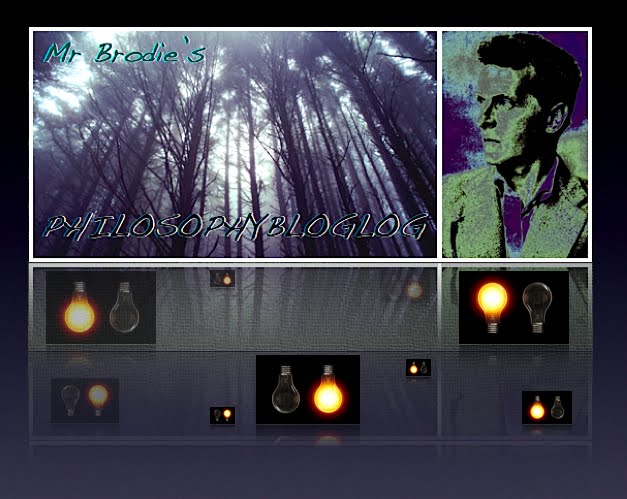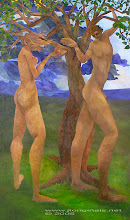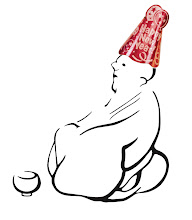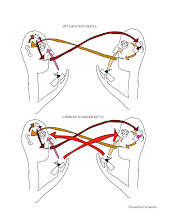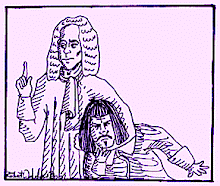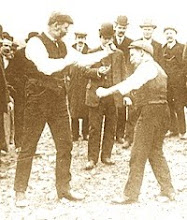Tuesday, January 26, 2010
Doing Well!
I have to say, I think you're getting this Knowledge of the external world rather well, so far. But of course, I can't be certain!
Representative, Indirect Realism
This understanding of the way we perceive the world tries to get around the weaknesses of direct / naive realism by positing the idea of 'sense data' as intermediaries between the external world and and our perception of it.
The 'sense data' allow us to form a representation of the 'real' physical world. The 'sense' data are 'mind-dependent' and 'object-independent' they can exist when we are not currently perceiving the objects we are having sense data representations of (like in dreams or hallucinations) and they vary according to our perspective (perceptual variation or relativity) and circumstances. So hallucinations are occasions when sense data occur without any corresponding stimulus in the physical world. Similarly illusions are simply examples of the 'sense data' being unable to match up with reality accurately. Perceptual variation, is explained in the fact that 'sense data' are mind-dependent' rather than object dependent and therefore vary according the individual's different perspective or point of view on the world.
Although this theory seems to describe the way people experience the world more accurately than the clearly flawed naive realism, it has some very obvious problems of its own.
First of all it is not at all clear what the relationship is between the physical world and the 'sense data' that it seems to give rise to in us. If the sense data can be inaccurate as in the case of illusions, or entirely erroneous as in hallucinations, then how can we be sure that sense data actually represent anything at all?
Once the direct link between the supposed real physical world and our perception of it is called into doubt then the extent to which our representations of that world are accurate seems open to doubt, and a position of extreme scepticism (that the real world doesn't exist at all) seems possible. Either that or you end up being an idealist like Berkeley, or mad like Scott.
Labels:
berkeley,
representative realism,
scepticism,
sense data
Direct Realism 'A conversation'
'How the world looks to me is how the world is. It's obvious. What I see out there is what's out there.'
'What about illusions?
'Wot about them?'
Don't they prove that how the world appears is not necessarily how the world is?
'Do what, son? 's jus' a trick o' the light, or summint, innit?'
'But, what about hallucinations or the problem of perceptual relativity. If you accept that even once your perceptions do not match 'reality' then subsequently it's impossible to have ontological certainty, surely.'
'Oo you calling Shirley? You cheeky muppet! I'll give you homological (sic) certainty, you pranny, take that!
'Ah, you are quite correct, sir, the impact of your fist upon my nose has caused me a direct and .. . to be continued ...
A more coherent defence of a form of direct realism is given by J.L. Austin. The text book mentions him, but doesn't do him justice. We must when we revise.
Saturday, January 23, 2010
Sense Data Homework: Due Monday
Explain as fully as you can how 'Sense data' theories attempt to resolve the problems of naive direct realism. (Draw a diagram if you feel it necessary)
You should probably use the following terms in your explanation:
 intermediary / intermediaries, mediate / mediation, represents / representation, mind-dependent / mind-independent, perceptual error, perceptual variation, subjective, objective.
intermediary / intermediaries, mediate / mediation, represents / representation, mind-dependent / mind-independent, perceptual error, perceptual variation, subjective, objective.And read the rest of the Russell (especially the bit about his cat!)
Subscribe to:
Posts (Atom)
